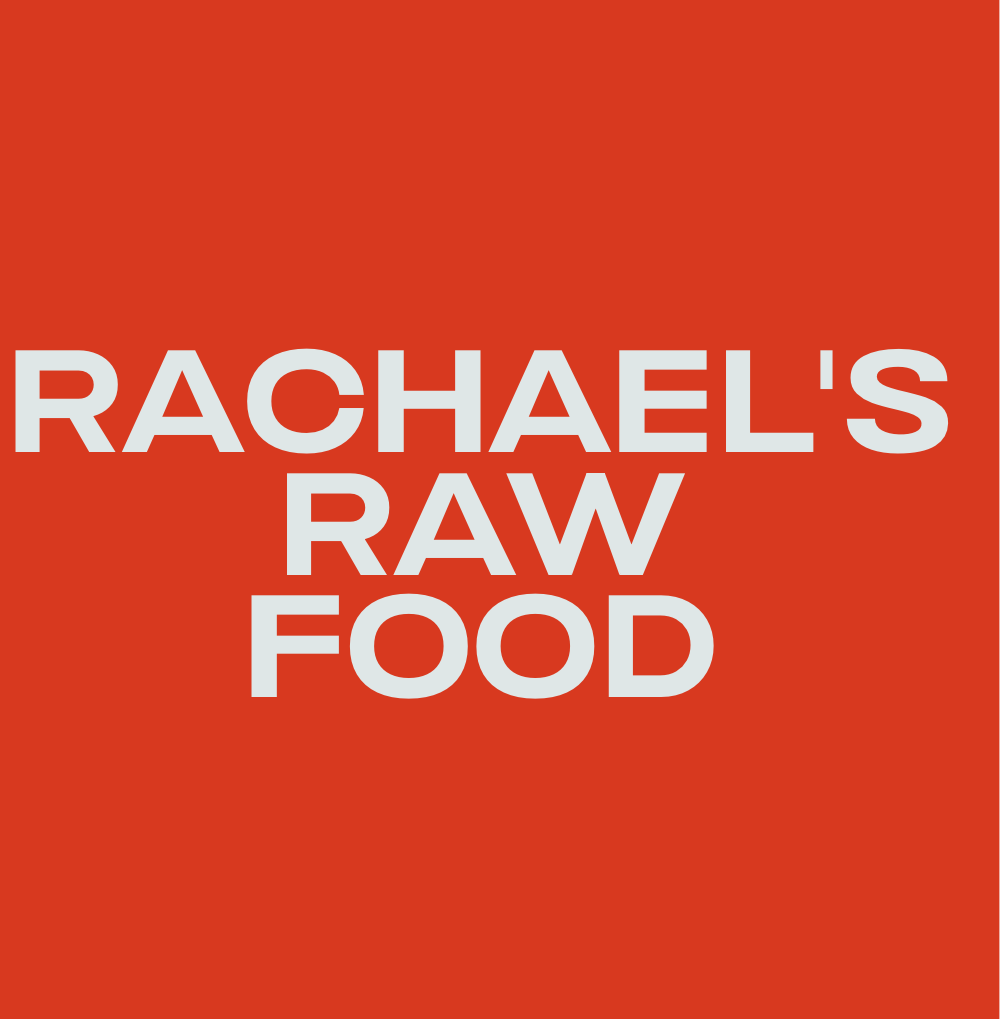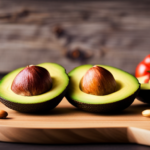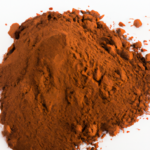Benefits of Raw Food
Keto Diet Vs Raw Food Diet, Which Is Better?
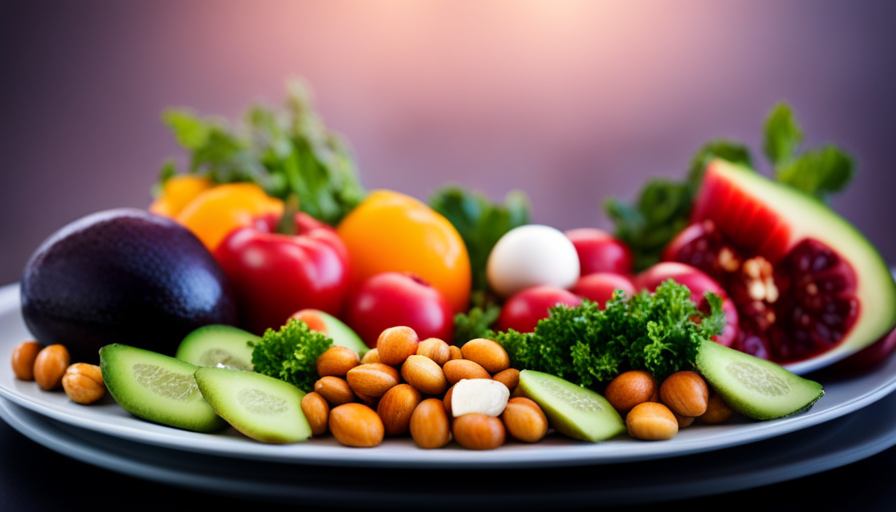
Are you striving to improve your overall health and reach your weight loss goals? With so many diet options out there, it can be difficult to choose the right one for you. Have you thought about comparing the keto diet to the raw food diet? Both of these dietary approaches have become increasingly popular, but which one is better for your overall well-being?
In this article, we will explore the keto diet and the raw food diet, examining their principles, potential health benefits, and drawbacks. By understanding the science behind these diets, you can make an informed decision that suits your lifestyle and goals.
So, are you ready to dive into the world of diets and discover which one is best for you? Let’s get started!
Key Takeaways
- The keto diet focuses on high fat, moderate protein, and low carbohydrate intake, aiming to put the body into a state of ketosis. It can lead to weight loss, improve insulin sensitivity, and may have neurological benefits.
- The raw food diet emphasizes consuming unprocessed and uncooked foods like fruits, vegetables, nuts, seeds, and sprouts. It retains more nutrients and enzymes compared to cooking, increases fiber intake, and can aid in weight loss.
- Both diets have their advantages and disadvantages. The keto diet may reduce the risk of heart disease and can be effective for short-term weight loss, but may lead to nutrient deficiencies and constipation. The raw food diet provides abundant nutrients and supports overall health, but may be harder to digest and carry a higher risk of foodborne illnesses.
- It is important to consider individual dietary needs and goals when choosing a diet. Consulting with a healthcare professional or registered dietitian is recommended before making any dietary changes.
Understanding the Keto Diet
Get ready to dive into the world of the Keto diet and discover its incredible benefits! When comparing the Keto diet to the Paleo diet, it’s important to note that both have their own unique approaches to nutrition.
The Keto diet, short for ketogenic, focuses on high fat, moderate protein, and low carbohydrate intake. This approach aims to put your body into a state of ketosis, where it uses fat as its primary source of fuel instead of carbohydrates.
One of the main benefits of the ketogenic diet is weight loss. By drastically reducing carbohydrate intake, your body starts burning fat for energy, resulting in weight loss. Additionally, the Keto diet has been shown to improve insulin sensitivity and stabilize blood sugar levels, making it beneficial for individuals with diabetes or insulin resistance.
Moreover, the Keto diet may have neurological benefits. Studies have suggested that it can help reduce seizures in individuals with epilepsy. It may also improve cognitive function and provide neuroprotective effects.
However, it’s important to note that the Keto diet may not be suitable for everyone. It requires careful planning and monitoring to ensure adequate nutrient intake. Additionally, some individuals may experience side effects such as the ‘keto flu’ during the initial transition period.
The Keto diet offers numerous benefits, including weight loss, improved insulin sensitivity, and potential neurological benefits. However, it’s important to consult with a healthcare professional before starting any new diet to ensure it aligns with your individual needs and goals.
Exploring the Raw Food Diet
Delving into the world of the Raw Food Diet unveils a fascinating approach to nourishing the body. This diet emphasizes consuming unprocessed and uncooked foods, such as fruits, vegetables, nuts, seeds, and sprouts. Here are some key points to consider:
-
Advantages of the Raw Food Diet:
- Nutrient-rich: Raw foods retain more vitamins, minerals, and enzymes that can be lost through cooking.
- Increased fiber intake: Raw fruits and vegetables are high in fiber, which aids in digestion and helps maintain a healthy weight.
- No additives or preservatives: By avoiding processed foods, you eliminate potentially harmful additives and preservatives.
-
Challenges of the Raw Food Diet:
- Cooking techniques: The Raw Food Diet requires specific cooking techniques like juicing, blending, dehydrating, or sprouting, which may require additional equipment and time.
- Meal planning: Planning meals on the Raw Food Diet can be challenging, as it involves sourcing fresh, organic produce and ensuring a balance of nutrients.
While the Raw Food Diet offers potential benefits, it’s essential to consider individual needs and preferences. Consulting a healthcare professional or registered dietitian can provide personalized guidance on incorporating this diet into a healthy lifestyle.
Principles of the Keto Diet
Embracing the principles of the Keto lifestyle brings a new level of metabolic flexibility and encourages the body to rely on fat for fuel instead of carbohydrates. The Keto diet, short for ketogenic diet, is a low-carb, high-fat eating plan that has gained popularity in recent years.
The main principle of the Keto diet is to drastically reduce carbohydrate intake and replace it with healthy fats. By doing this, your body enters a state called ketosis, where it starts utilizing stored fat as its primary source of energy.
There are several benefits associated with the Keto diet. Firstly, it can lead to significant weight loss. When your body is in ketosis, it becomes efficient at burning fat, leading to a reduction in body weight. In addition, the Keto diet has been shown to improve blood sugar control, making it a potential option for individuals with type 2 diabetes. Furthermore, it may help reduce the risk of heart disease by lowering levels of triglycerides and increasing levels of HDL cholesterol.
It’s important to note that the Keto diet may not be suitable for everyone. It requires careful planning and monitoring to ensure adequate nutrient intake. Additionally, it may cause side effects such as constipation, nutrient deficiencies, and the ‘keto flu’ during the initial transition period.
Overall, embracing the principles of the Keto diet can offer various benefits, particularly in terms of weight loss and blood sugar control. However, it’s essential to consult with a healthcare professional before making any significant dietary changes.
Principles of the Raw Food Diet
If you’re looking to revitalize your eating habits and explore a new approach to nutrition, consider incorporating the principles of the raw food lifestyle into your daily routine.
The raw food diet is centered around consuming unprocessed, uncooked, and organic foods, with the belief that cooking destroys essential nutrients and enzymes. Advocates of this diet claim that it can lead to weight loss, increased energy levels, and improved digestion.
One of the main benefits of the raw food diet is the abundance of nutrients in raw fruits, vegetables, nuts, and seeds. These foods are rich in vitamins, minerals, and antioxidants that can support overall health and well-being. Additionally, raw food recipes often emphasize the use of whole, plant-based ingredients, which are known to provide numerous health benefits.
Transitioning to a raw food diet can be a gradual process. It’s important to start by incorporating more raw fruits and vegetables into your meals and gradually reducing the amount of cooked foods you consume. There are numerous resources available online that provide raw food recipes and meal plans to help you make this transition.
While the raw food diet has its benefits, it’s important to note that it may not be suitable for everyone. Some individuals may find it challenging to meet their nutritional needs solely through raw foods. It’s essential to consult with a healthcare professional or registered dietitian before making any significant changes to your diet.
Potential Health Benefits of the Keto Diet
To experience the potential health benefits of the ketogenic lifestyle, picture yourself indulging in a plate of sizzling, juicy steak, accompanied by a colorful array of vibrant, buttery vegetables.
The keto diet has gained popularity for its potential to promote weight loss and improve mental clarity.
One of the main reasons people turn to the keto diet is because it can lead to significant weight loss. By drastically reducing carbohydrate intake and increasing the consumption of healthy fats, the body enters a state called ketosis. In this state, the body starts using stored fat as its primary source of fuel, leading to weight loss.
Additionally, the keto diet has been associated with improved mental clarity. When the body is in ketosis, the brain utilizes ketones, a type of molecule that is produced during the breakdown of fat. Some studies suggest that this shift in fuel source can enhance cognitive function, focus, and mental performance.
It’s important to note that while the keto diet may have potential health benefits, it may not be suitable for everyone. It requires careful planning and monitoring to ensure adequate nutrient intake. It’s always advisable to consult with a healthcare professional before making any significant changes to your diet.
Potential Health Benefits of the Raw Food Diet
Imagine enjoying a plate of fresh, vibrant fruits and vegetables, knowing that the raw food diet has been associated with a 20% decrease in the risk of developing chronic diseases. The raw food diet, which consists of consuming uncooked and unprocessed foods, is believed to have several potential health benefits.
One of the main advantages of the raw food diet is its positive impact on digestion. Raw foods are rich in digestive enzymes, which are believed to aid in the breakdown and absorption of nutrients. Additionally, the high fiber content of raw fruits and vegetables can promote regular bowel movements and prevent constipation.
Another potential benefit of the raw food diet is its association with weight loss. Raw foods are typically low in calories and high in fiber, which can help individuals feel fuller for longer and reduce overall calorie intake. Additionally, the high water content in raw foods can contribute to weight loss by promoting hydration and reducing overeating.
However, it’s important to note that the raw food diet may not be suitable for everyone. Some individuals may find it difficult to meet their nutritional needs on a solely raw food diet, as certain nutrients, such as vitamin B12 and iron, are more easily obtained from cooked foods. It’s also important to practice proper food safety and hygiene when consuming raw foods to prevent the risk of foodborne illnesses.
The raw food diet has the potential to improve digestion and aid in weight loss. However, it’s important to consider individual nutritional needs and practice proper food safety when adopting this diet. Consulting with a healthcare professional or registered dietitian is recommended before making any significant dietary changes.
Drawbacks of the Keto Diet
Despite its popularity and potential benefits, the keto diet does have its drawbacks. It’s important to be aware of the potential negative effects of this diet before deciding to follow it.
One of the main drawbacks of the keto diet is the potential for nutrient deficiencies. By severely restricting carbohydrates, the diet limits the intake of fruits, vegetables, and whole grains, which are important sources of vitamins, minerals, and fiber. This can lead to deficiencies in key nutrients like vitamin C, potassium, and magnesium.
Another drawback of the keto diet is the potential for side effects. When the body switches from using carbohydrates for energy to using fat, it can cause a range of symptoms known as the "keto flu." These symptoms can include fatigue, headaches, nausea, and irritability. Additionally, the diet can lead to constipation due to the lack of fiber intake.
Lastly, the keto diet may not be sustainable for everyone. It requires strict adherence to a very low carb intake, which can be challenging to maintain long-term. This can lead to feelings of deprivation and frustration, making it difficult to stick to the diet in the long run.
While the keto diet may have its benefits, it’s important to consider the potential drawbacks before deciding to follow it. Nutrient deficiencies, side effects, and sustainability are all factors to take into account when considering this diet.
Drawbacks of the Raw Food Diet
Watch out, though – the raw food diet may come with its fair share of drawbacks. While it promotes the consumption of uncooked, unprocessed foods, it also limits your food options and poses the risk of potential nutrient deficiencies. Here are four important points to consider:
-
Limited Food Options: The raw food diet excludes all cooked and processed foods, which significantly restricts your meal choices. This may lead to monotony and make it challenging to meet your nutritional needs.
-
Potential Nutrient Deficiencies: Raw food enthusiasts often have difficulty obtaining adequate amounts of certain nutrients, such as vitamin B12, iron, and omega-3 fatty acids, which are mainly found in animal products and cooked foods. These deficiencies can have negative effects on your overall health and well-being.
-
Digestive Challenges: Raw foods can be harder to digest than cooked foods, leading to bloating, gas, and other digestive issues. Some individuals may find it difficult to fully break down the fiber in raw vegetables, which can cause discomfort.
-
Food Safety Concerns: Consuming raw foods carries a higher risk of foodborne illnesses, such as salmonella and E. coli. Proper food handling and thorough washing of produce are essential to minimize these risks.
While the raw food diet may have its benefits, it’s essential to consider these drawbacks and ensure you’re meeting your nutritional needs through a well-balanced and varied diet. Consulting with a healthcare professional or registered dietitian is recommended before making any significant dietary changes.
Factors to Consider When Choosing a Diet
When choosing a diet, you need to prioritize your health and happiness above all else. There are several factors to consider when making this decision. First, think about your specific dietary needs and goals. Are you looking to lose weight, improve your overall health, or manage a specific medical condition? Understanding your personal objectives will help you narrow down your options.
Next, consider the pros and cons of each diet. A helpful way to compare the two is by using a table:
| Factors to Consider | Keto Diet | Raw Food Diet |
|---|---|---|
| Weight Loss | Pros | Cons |
| Nutritional Balance | Pros | Cons |
| Sustainability | Cons | Pros |
| Food Preparation | Cons | Pros |
The keto diet may be beneficial for weight loss and can provide a nutritional balance when carefully planned. However, it may not be sustainable for everyone and can be challenging in terms of food preparation. On the other hand, the raw food diet offers the advantage of providing more natural and unprocessed foods, but it may lack certain nutrients and require careful planning to ensure a balanced diet.
Ultimately, the choice between a keto diet and a raw food diet depends on your individual needs and preferences. It is essential to consult with a healthcare professional or a registered dietitian to determine the best approach for you.
Making an Informed Decision
To make an informed decision about your eating plan, you should weigh all the options and consider what floats your boat. When it comes to choosing between the keto diet and the raw food diet, it’s important to compare the pros and cons of each and take into account their nutritional value.
The keto diet is a low-carb, high-fat diet that aims to put your body into a state of ketosis, where it burns fat for fuel instead of carbohydrates. Supporters of the keto diet claim that it can lead to weight loss, improved mental clarity, and reduced inflammation.
On the other hand, the raw food diet focuses on consuming uncooked and unprocessed foods, such as fruits, vegetables, nuts, and seeds. Advocates of this diet believe that it provides a higher intake of enzymes, vitamins, and minerals.
When comparing the nutritional value of these diets, it’s essential to consider the balance of macronutrients and micronutrients they provide. The keto diet emphasizes fat and restricts carbohydrates, which can lead to potential deficiencies in fiber, certain vitamins, and minerals.
On the other hand, the raw food diet can be lacking in certain essential nutrients, such as vitamin B12, iron, and omega-3 fatty acids.
Ultimately, the choice between the keto diet and the raw food diet depends on your personal preferences, health goals, and lifestyle. It’s important to consult with a healthcare professional or registered dietitian before making any drastic changes to your eating plan.
Frequently Asked Questions
Can I combine elements of the keto diet and raw food diet to create a hybrid diet plan?
Combining elements of the keto diet and raw food diet to create a hybrid meal plan is possible. There are potential benefits to this approach, such as increased nutrient intake from raw foods and the potential for weight loss from the keto diet.
However, there are also drawbacks, such as the limited food options on both diets and the potential for nutrient deficiencies. To successfully plan a hybrid diet, focus on including a variety of nutrient-dense, low-carb raw foods while still maintaining ketosis.
What are some common challenges people face when following the keto diet?
Challenges faced on the keto diet can be quite the rollercoaster ride. From bidding farewell to your beloved carbs to dealing with the notorious keto flu, it’s no walk in the park. But fear not, for the benefits gained are worth it!
Not only can you experience weight loss and improved blood sugar control, but studies also suggest that it may have positive effects on heart health and brain function. So, buckle up and embrace the challenges for a healthier you!
Are there any potential nutrient deficiencies associated with the raw food diet?
Potential nutrient deficiencies can arise from a raw food diet. While it offers many health benefits, there are risks to consider. Raw food diets typically lack certain nutrients like vitamin B12, iron, and omega-3 fatty acids. These deficiencies can lead to fatigue, anemia, and impaired cognitive function.
It’s crucial to carefully plan a raw food diet to ensure you’re getting all necessary nutrients. Consulting with a registered dietitian can help address any potential nutrient deficiencies and minimize risks.
Can the keto diet be sustainable in the long term?
Maintaining the keto diet in the long term can be challenging, but with proper planning and guidance, it can be sustainable. Research suggests that the keto diet may have potential health benefits, such as weight loss and improved blood sugar control.
However, it’s important to note that the raw food diet also offers health benefits, including increased intake of nutrients and antioxidants. Ultimately, the choice between the two diets depends on individual preferences, goals, and nutritional needs.
Are there any specific health conditions that may benefit more from one diet over the other?
Specific health conditions may benefit more from either the keto diet or the raw food diet. For example, the keto diet has been shown to be effective for people with epilepsy, as it can help reduce seizures.
On the other hand, the raw food diet may be beneficial for individuals with digestive issues, as it’s high in fiber and can aid in digestion.
It’s important to consult with a healthcare professional to determine which diet may be best for your specific health condition.
How Does the Raw Food Diet Compare to the Keto Diet in Terms of Health and Weight Loss Benefits?
When comparing the raw food diet results to the keto diet, it’s important to consider the specific health and weight loss benefits of each. While the raw food diet focuses on consuming unprocessed, plant-based foods, the keto diet promotes high fat, low carb intake for weight loss and improved health.
Conclusion
In conclusion, both the keto diet and the raw food diet have their pros and cons. It ultimately comes down to personal preference and goals.
While the keto diet may offer rapid weight loss and improved mental clarity, it can be difficult to sustain long-term and may lead to nutrient deficiencies.
On the other hand, the raw food diet provides a plethora of vitamins and minerals, but may lack essential nutrients like protein and healthy fats.
Consider your lifestyle, health goals, and consult with a healthcare professional to make an informed decision. Remember, there’s no ‘one-size-fits-all’ approach to nutrition. Keep an open mind and find what works best for you.
Penelope, a talented writer for rachaelsrawfood.com, brings a unique perspective and a wealth of knowledge to the platform. With her exceptional writing skills and deep understanding of nutrition, she plays an integral role in conveying the benefits of raw food to a wide audience.
One of Penelope’s strengths lies in her ability to simplify complex concepts and make them accessible to a wide audience. She understands that not everyone has prior knowledge of raw food or nutrition, so she breaks down information in a way that is easy to understand without sacrificing accuracy. Her writing perfectly balances educational and engaging, allowing readers to grasp the concepts while enjoying the reading experience.
In addition to her writing contributions, Penelope actively collaborates with Rachael, the Editor in Chief, and the rest of the team at rachaelsrawfood.com. She participates in brainstorming sessions, offering creative ideas for new articles, recipes, and projects. Her passion for research ensures that the website’s content is current and evidence-based, providing readers with reliable information to support their raw food journey.
Benefits of Raw Food
What Are Raw Food Created Nutrients Garden Of Life

When I step into the enchanting world of Garden of Life’s Raw Food Created Nutrients, I am transported to a lush garden full of energy and abundant nutrients. Here, surrounded by fertile soil and sun-drenched plants, the marvel of raw food nutrient creation comes to life.
But what exactly are raw food created nutrients? These are meticulously crafted, whole food-based supplements that harness the power of nature to support our health and well-being. Unlike synthetic vitamins, which are often devoid of the essential co-factors and enzymes found in whole foods, raw food created nutrients retain their natural integrity, delivering a potent dose of bioavailable goodness.
In this article, we will delve into the fascinating process of creating raw food nutrients, explore their myriad benefits for our health, and discover the extensive range of products offered by Garden of Life.
With scientific research backing their effectiveness and a commitment to using only the finest whole food ingredients, Garden of Life’s raw food created nutrients are a pathway to optimal health. So join me on this journey as we unlock the power of nature’s bounty and embrace the vitality that raw food nutrients can bring.
Key Takeaways
- Raw food created nutrients are whole food-based supplements that retain their natural integrity and deliver bioavailable goodness.
- Garden of Life uses organic ingredients to ensure their products are free from harmful chemicals and are more nutrient-dense compared to conventionally grown produce.
- The process of creating raw food nutrients involves whole food fermentation, enzyme activation, gentle drying, and quality control, resulting in highly effective supplements with superior bioavailability and longer half-life in the body.
- Raw food created nutrients provide additional phytonutrients, enzymes, and co-factors that have health-promoting effects, and their use supports sustainable and environmentally friendly farming practices.
Introduction to Garden of Life’s Raw Food Created Nutrients
Get ready to discover Garden of Life’s incredible Raw Food Created Nutrients and how they can revolutionize your health and well-being! As a health-conscious individual, understanding nutrient absorption is crucial. Garden of Life’s Raw Food Created Nutrients are designed to be easily absorbed by your body, ensuring that you get the maximum benefits from each dose.
One of the key factors that sets Garden of Life’s Raw Food Created Nutrients apart is their use of organic ingredients. By using organic fruits, vegetables, and herbs, Garden of Life ensures that their products are free from harmful pesticides, herbicides, and synthetic chemicals. This commitment to organic ingredients not only benefits your health, but also supports sustainable and environmentally friendly farming practices.
The benefits of organic ingredients go beyond just avoiding harmful chemicals. Organic produce tends to be more nutrient-dense compared to conventionally grown produce. This means that Garden of Life’s Raw Food Created Nutrients provide you with a higher concentration of essential vitamins, minerals, and antioxidants that your body needs for optimal health.
Understanding the process of creating raw food nutrients is essential to fully appreciate the quality and effectiveness of Garden of Life’s products. Stay tuned as we delve deeper into this fascinating topic and explore how Garden of Life harnesses the power of nature to create these incredible raw food nutrients.
Understanding the Process of Creating Raw Food Nutrients
Start by understanding how these nutrients are made. Have you ever wondered about the process behind creating these essential elements for your health? Well, let me break it down for you.
Garden of Life’s Raw Food Created Nutrients are made by carefully selecting and cultivating a variety of organic fruits, vegetables, and other whole foods. The goal is to create nutrient-rich foods that are as close to their natural state as possible.
-
Whole Food Fermentation: The first step in creating these nutrients involves fermenting the whole foods. This process helps to break down the food and enhance its nutritional value.
-
Enzyme Activation: After fermentation, specific enzymes are added to activate the nutrients and make them more bioavailable. This means that your body can absorb and utilize the nutrients more effectively.
-
Gentle Drying: Once the nutrients are activated, they are gently dried at low temperatures to preserve their integrity. This helps to maintain the nutrient content and ensure that you are getting the full benefits of raw food nutrition.
-
Quality Control: Throughout the entire process, Garden of Life maintains strict quality control measures to ensure that the final product is of the highest quality and meets their rigorous standards.
Understanding the process behind creating these raw food nutrients gives you a deeper appreciation for the benefits they offer for your health. Now, let’s dive into the next section and explore the numerous benefits of raw food created nutrients for your overall well-being.
Benefits of Raw Food Created Nutrients for Your Health
By understanding the intricate process behind cultivating and activating these nourishing elements, one gains a profound insight into the manifold benefits they bestow upon overall well-being. Raw food created nutrients offer a host of advantages for our health.
Scientific research has shown that these nutrients are highly effective in providing the body with essential vitamins and minerals. Unlike synthetic vitamins, which are often made from isolated compounds, raw food created nutrients are derived from whole foods. This means that they contain a wide range of naturally occurring compounds that work synergistically to support optimal health.
Numerous studies have demonstrated the superior bioavailability of raw food created nutrients compared to their synthetic counterparts. This means that our bodies can absorb and utilize these nutrients more effectively. Furthermore, research has shown that these nutrients have a longer half-life in the body, allowing for sustained benefits over time.
The benefits of raw food created nutrients extend beyond mere absorption and bioavailability. They also provide additional phytonutrients, enzymes, and co-factors that are naturally present in whole foods. These compounds have been shown to have various health-promoting effects, such as antioxidant, anti-inflammatory, and immune-supporting properties.
The effectiveness of raw food created nutrients is supported by scientific research and their unique composition. By incorporating these nutrients into our diet, we can reap the many benefits they offer for our overall well-being. Transitioning to the subsequent section about the importance of whole food ingredients in raw nutrient creation, it’s vital to understand the role of these ingredients in ensuring the highest quality and potency of raw food created nutrients.
The Importance of Whole Food Ingredients in Raw Nutrient Creation
Using whole food ingredients in the creation of raw nutrients is like adding fuel to the fire, enhancing the potency and effectiveness of these nourishing elements. When it comes to the benefits of raw food created nutrients for your health, incorporating whole food ingredients takes it to another level.
Here are some reasons why whole food ingredients are essential in raw nutrient creation:
-
Nutrient Absorption: Whole food ingredients contain natural enzymes and co-factors that aid in the absorption and utilization of nutrients by our bodies. This means that when we consume raw nutrients created from whole foods, our bodies can better absorb and make use of these essential vitamins and minerals.
-
Increased Bioavailability: Whole food ingredients provide a natural form of nutrients that our bodies recognize and can readily assimilate. This enhances the bioavailability of these nutrients, ensuring that we receive the maximum benefit from them.
-
Synergistic Effects: Whole food ingredients contain a wide range of phytochemicals, antioxidants, and other beneficial compounds. When combined, these compounds work together synergistically, creating a powerful effect on our health and well-being.
-
Enhanced Nutrient Density: Whole food ingredients are naturally rich in vitamins, minerals, and other essential nutrients. By using these ingredients in raw nutrient creation, we can ensure that the final product is packed with the highest possible nutrient density.
-
Superior Quality: Whole food ingredients are often sourced from organic farms and are minimally processed. This ensures that the raw nutrients created from these ingredients are of the highest quality, free from harmful additives or contaminants.
Exploring the range of raw food created nutrient products by Garden of Life allows us to experience the full potential of these whole food benefits. Transitioning into this section, we can delve into the exciting options available to support our health and wellness.
Exploring the Range of Raw Food Created Nutrient Products by Garden of Life
Discover the diverse array of nutrient-rich products from Garden of Life that’ll elevate your health and wellness journey to new heights. Garden of Life offers a range of raw food created nutrient products that are designed to provide you with the benefits of raw food supplements.
These products are made from whole food ingredients that are carefully selected to ensure maximum nutritional value. Raw food created nutrients have been shown to be highly effective in preventing disease and promoting overall health. When nutrients are derived from whole foods, they’re in their natural form and are more easily recognized and utilized by the body. This means that your body can absorb and utilize the nutrients more effectively, leading to better health outcomes.
Garden of Life’s raw food created nutrient products include vitamins, minerals, probiotics, and protein powders, among others. Each product is carefully formulated to provide you with the specific nutrients your body needs to thrive. Whether you’re looking to boost your immune system, support digestion, or enhance your athletic performance, Garden of Life has a product for you.
Incorporating raw food created nutrients into your diet is simple. By adding Garden of Life’s nutrient-rich products to your daily routine, you can easily ensure that you’re getting the essential nutrients your body needs to stay healthy. Transition seamlessly into the next section to learn more about how to incorporate these powerful nutrients into your diet.
How to Incorporate Raw Food Created Nutrients into Your Diet
Now that we’ve explored the range of raw food created nutrient products offered by Garden of Life, let’s talk about how you can incorporate these nutrients into your diet.
Incorporating raw food nutrients into your daily routine can have numerous benefits for your overall health and wellbeing. Raw food created nutrients are derived from whole foods and are designed to give your body the essential vitamins, minerals, and antioxidants it needs to thrive.
One of the easiest ways to incorporate raw food created nutrients into your diet is by adding them to your meals and snacks. You can sprinkle raw food nutrients on top of salads, blend them into smoothies, or mix them into your favorite recipes. Additionally, Garden of Life offers a variety of raw food nutrient supplements that can be taken in capsule or powder form.
By incorporating raw food nutrients into your diet, you can experience benefits such as increased energy, improved digestion, enhanced immune function, and better overall health. These nutrients are easily absorbed by the body and provide a natural source of essential nutrients.
In the next section, we’ll delve into the scientific research and evidence supporting the effectiveness of raw food created nutrients, further solidifying their importance in maintaining optimal health.
Scientific Research and Evidence Supporting the Effectiveness of Raw Food Created Nutrients
Incorporating these nutrient-rich products into your diet has been backed by scientific research, providing evidence of their effectiveness in promoting optimal health and wellbeing. Numerous studies have been conducted to examine the impact of raw food created nutrients on overall health, and the results have been promising.
Scientific research has shown that raw food nutrients, derived from whole foods, are more bioavailable and easily absorbed by the body compared to synthetic vitamins. This means that our bodies can utilize these nutrients more efficiently, leading to better overall health outcomes.
One study published in the Journal of Nutrition found that individuals who consumed raw food created nutrients had higher levels of key vitamins and minerals in their blood compared to those who took synthetic vitamins. Another study conducted by researchers at the University of California, Davis, showed that raw food created nutrients had a greater impact on reducing oxidative stress and inflammation in the body, important factors in preventing chronic diseases.
The evidence supporting the effectiveness of raw food created nutrients is clear. Incorporating these nutrient-rich products into your diet can provide you with the essential vitamins and minerals your body needs for optimal health. Now, let’s explore the difference between raw food created nutrients and synthetic vitamins.
Raw Food Created Nutrients vs. Synthetic Vitamins: Understanding the Difference
The key to unlocking optimal health lies in embracing the nutrient-rich gifts of nature and understanding the stark contrast between the life-infused essence of raw food created nutrients and the soulless artificiality of synthetic vitamins.
When it comes to obtaining essential nutrients, there is a clear distinction between raw food created nutrients and synthetic vitamins. Raw food created nutrients are derived from whole foods, which contain a complex array of vitamins, minerals, and other beneficial compounds that work synergistically to support our health. On the other hand, synthetic vitamins are chemically produced in a laboratory and often lack the complete spectrum of nutrients found in their natural counterparts.
Choosing raw food created nutrients over synthetic vitamins offers numerous benefits. Firstly, these nutrients are more bioavailable, meaning our bodies can absorb and utilize them more effectively. Secondly, raw food nutrients are often accompanied by enzymes and cofactors that enhance their absorption and utilization. Additionally, raw food created nutrients are free from fillers, binders, and other potentially harmful additives commonly found in synthetic vitamins.
Opting for raw food created nutrients is a wise choice for those seeking optimal health and wellness. By harnessing the power of nature’s bounty, we can nourish our bodies with the complete spectrum of nutrients they need to thrive.
Now, let’s dive into some frequently asked questions about Garden of Life’s raw food created nutrients.
Frequently Asked Questions About Garden of Life’s Raw Food Created Nutrients
Explore the abundance of knowledge surrounding Garden of Life’s nutrient-rich offerings and discover answers to your burning questions. Garden of Life’s raw food created nutrients are a unique and innovative approach to nutrition. These nutrients are derived from real, whole foods, making them easily recognizable and absorbed by the body. They are created through a gentle, low-temperature process that preserves the integrity of the nutrients and enzymes found in the raw ingredients.
To help you understand more about Garden of Life’s raw food created nutrients, here are some frequently asked questions:
| Question | Answer |
|---|---|
| What are raw food created nutrients? | Raw food created nutrients are vitamins, minerals, and probiotics that are made by isolating and concentrating the nutrients found in raw, whole foods. They are not chemically synthesized like synthetic vitamins. |
| How are raw food created nutrients different from synthetic vitamins? | Raw food created nutrients are derived from real, whole foods, while synthetic vitamins are made in a laboratory. Raw food created nutrients are also more bioavailable and easier for the body to recognize and utilize. |
| Are raw food created nutrients safe? | Yes, raw food created nutrients are safe to consume. They are made from organic, non-GMO ingredients and undergo rigorous testing to ensure purity and quality. |
Garden of Life’s raw food created nutrients are a cutting-edge approach to nutrition that offers a multitude of benefits for optimal health. Embrace the power of these nutrient-rich offerings and experience the difference they can make in your overall well-being.
Conclusion: Embracing the Power of Raw Food Created Nutrients for Optimal Health
Maximize your health potential by harnessing the power of these innovative plant-based supplements and ensure a stronger immune system and increased energy levels for a more vibrant and fulfilling life. For example, imagine waking up each morning feeling refreshed and energized, ready to take on the day with enthusiasm and vitality.
The power of raw food created nutrients can’t be underestimated when it comes to achieving optimal health. These nutrients are derived from whole foods, which means they contain all the essential vitamins, minerals, and enzymes that our bodies need to thrive. Unlike synthetic supplements, raw food created nutrients are easily absorbed and utilized by our bodies, maximizing their effectiveness.
Numerous studies have shown that raw food created nutrients offer a variety of health benefits. They can support a healthy immune system, promote proper digestion, improve nutrient absorption, and even enhance mental clarity and focus. By incorporating these nutrients into your daily routine, you can experience improved overall health and well-being.
In addition to their health benefits, raw food created nutrients are also environmentally friendly. They’re sustainably sourced and produced, minimizing the negative impact on our planet. By choosing these supplements, you’re not only taking care of your own health but also contributing to a healthier planet for future generations.
Embracing the power of raw food created nutrients is a wise choice for achieving optimal health. These supplements provide essential nutrients in a form that our bodies can easily utilize, leading to improved immune function, increased energy levels, and overall vitality. By incorporating these supplements into your daily routine, you can experience the transformative effects of raw food created nutrients for yourself.
Frequently Asked Questions
How are raw food created nutrients different from synthetic vitamins?
Raw food created nutrients are different from synthetic vitamins in several ways. Firstly, raw food nutrients are derived from whole foods, whereas synthetic vitamins are chemically created in a laboratory. This means that raw food nutrients are more bioavailable and easily absorbed by the body.
Additionally, raw food created nutrients contain a wide range of phytonutrients, enzymes, and co-factors that are naturally present in whole foods. This can provide numerous benefits for overall health, including improved digestion, increased energy, and enhanced immune function.
Can raw food created nutrients be taken by individuals with specific dietary restrictions, such as vegan or gluten-free diets?
Raw food created nutrients can be a great option for individuals with specific dietary restrictions, such as vegan or gluten-free diets. These nutrients are derived from whole foods, making them suitable for those following a plant-based or gluten-free lifestyle. Additionally, they can support weight loss goals as they provide essential nutrients without the added fillers and synthetic ingredients found in many conventional supplements.
Athletes can also benefit from raw food created nutrients as they provide natural, bioavailable sources of energy and promote overall wellness.
Are there any potential side effects or risks associated with consuming raw food created nutrients?
There are no known side effects or risks associated with consuming raw food created nutrients. In fact, they’re generally considered safe and well-tolerated by most individuals. Raw food created nutrients have been shown to provide potential health benefits, such as improved digestion, increased energy levels, and enhanced nutrient absorption.
Numerous studies have demonstrated the effectiveness of raw food created nutrients in supporting overall health and well-being. Therefore, incorporating them into a balanced diet can be a valuable addition to one’s nutritional routine.
How do raw food created nutrients compare in terms of bioavailability and absorption in the body?
Raw food created nutrients have been shown to have high bioavailability and excellent absorption in the body. Studies have demonstrated that the body can easily recognize and utilize these nutrients, resulting in enhanced health benefits.
The unique process used in creating these nutrients preserves their natural form, making them more readily absorbed by the body compared to synthetic alternatives. This ensures that individuals can effectively absorb and benefit from the full range of nutrients provided by raw food created nutrients.
Can raw food created nutrients be used as a replacement for a balanced diet, or are they meant to supplement existing nutritional intake?
Can raw food created nutrients be used as a replacement for a balanced diet, or are they meant to supplement existing nutritional intake?
While raw food created nutrients offer benefits such as increased bioavailability and absorption, they shouldn’t be used as a sole replacement for a balanced diet. These nutrients can supplement existing intake by providing additional vitamins, minerals, and antioxidants. However, they lack the full range of nutrients found in whole foods, making it important to maintain a diverse and balanced diet for optimal health.
What are the differences between Raw Food Created Nutrients and Raw Food Created Nutrients Garden of Life?
Raw Food Created Nutrients are natural supplements crafted to mimic the nutrients found in real food. Garden of Life takes it a step further by using 23 fruits and vegetables to enhance raw food nutrients creation. This process ensures optimal absorption and utilization of the nutrients by the body.
Conclusion
In conclusion, I must say that Garden of Life’s Raw Food Created Nutrients are absolutely life-changing! These nutrient-packed products are like a supercharged boost for your health. They’re meticulously crafted using whole food ingredients, ensuring that you receive the maximum benefits from every dose.
The scientific evidence supporting the effectiveness of these nutrients is overwhelming. Forget about synthetic vitamins – these raw food created nutrients are the real deal! Don’t miss out on the opportunity to embrace the power of these incredible products for optimal health. Trust me, you won’t be disappointed!
Penelope, a talented writer for rachaelsrawfood.com, brings a unique perspective and a wealth of knowledge to the platform. With her exceptional writing skills and deep understanding of nutrition, she plays an integral role in conveying the benefits of raw food to a wide audience.
One of Penelope’s strengths lies in her ability to simplify complex concepts and make them accessible to a wide audience. She understands that not everyone has prior knowledge of raw food or nutrition, so she breaks down information in a way that is easy to understand without sacrificing accuracy. Her writing perfectly balances educational and engaging, allowing readers to grasp the concepts while enjoying the reading experience.
In addition to her writing contributions, Penelope actively collaborates with Rachael, the Editor in Chief, and the rest of the team at rachaelsrawfood.com. She participates in brainstorming sessions, offering creative ideas for new articles, recipes, and projects. Her passion for research ensures that the website’s content is current and evidence-based, providing readers with reliable information to support their raw food journey.
Benefits of Raw Food
What Are Raw Food

Are you interested in the incredible advantages of unprocessed, natural food? Prepare to delve into the world of raw foods – the purest form of nutrition offered by nature!
Raw foods, simply put, are uncooked, unprocessed, and unadulterated ingredients that are packed with vital nutrients and enzymes. They are the superheroes of the culinary world, bursting with vibrant colors, tantalizing flavors, and unparalleled health benefits.
From crunchy vegetables to luscious fruits, sprouted grains to creamy nut butters, raw foods offer a tantalizing array of options to tantalize your taste buds and revitalize your body. Whether you’re a seasoned health enthusiast or just curious about the raw food movement, this article will guide you through the fascinating realm of raw foods, revealing their benefits, types, and ways to incorporate them into your diet.
Get ready to embark on a journey that will transform the way you think about food and nourish your body from the inside out.
Key Takeaways
- Raw foods are uncooked, unprocessed, and unadulterated ingredients packed with vital nutrients and enzymes.
- They are rich in vitamins, minerals, and antioxidants that are easily absorbed by the body.
- Consuming raw foods can lead to improved skin health, reducing inflammation and preventing premature aging.
- Raw foods include fruits, vegetables, nuts, seeds, and sprouted grains.
Definition and Explanation of Raw Foods
You can think of raw foods as uncooked, whole foods that retain all of their natural nutrients and enzymes, like vibrant fruits, crisp vegetables, and juicy sprouts. Raw foods are not processed or heated to temperatures above 118 degrees Fahrenheit (48 degrees Celsius), as this is believed to preserve the nutritional value and enzymes present in the food.
The definition of raw foods varies, but it generally includes fruits, vegetables, nuts, seeds, and sprouted grains. These foods are consumed in their natural state or prepared using methods like juicing, blending, or dehydrating at low temperatures. The raw food diet is based on the principle that cooking food can destroy essential nutrients and enzymes, which are important for digestion and overall health.
There are several benefits associated with consuming raw foods. Firstly, raw foods are rich in vitamins, minerals, and other essential nutrients that are easily absorbed by the body. Secondly, raw foods are usually low in calories and high in fiber, making them beneficial for weight management. Additionally, a raw food diet is often associated with increased energy levels, improved digestion, and a reduced risk of chronic diseases like heart disease and diabetes.
Transitioning into the subsequent section about the benefits of consuming raw foods, it’s important to explore how incorporating more raw foods into your diet can positively impact your health and well-being.
Benefits of Consuming Raw Foods
One interesting statistic is that consuming raw foods can lead to a higher intake of essential nutrients and enzymes, which can contribute to improved digestion and overall health. Here are some benefits of including raw foods in your diet:
-
Increased nutrient intake: Raw foods are rich in vitamins, minerals, and antioxidants that are essential for our body’s optimal functioning. By consuming them in their raw form, we can maximize the nutrient content and absorb them more effectively.
-
Enhanced digestion: Raw foods contain natural enzymes that aid in the breakdown and digestion of food. These enzymes are often destroyed during cooking processes. By consuming raw foods, we can support our digestive system and improve nutrient absorption.
-
Weight management: Raw foods are generally low in calories and high in fiber, making them a great choice for weight management. They provide a feeling of fullness and can help prevent overeating, leading to weight loss or maintenance.
-
Improved skin health: Raw foods are packed with antioxidants and nutrients that promote healthy skin. They can help reduce inflammation, prevent premature aging, and enhance the natural glow of your skin.
While there are numerous benefits of consuming raw foods, it’s important to note that there are also potential risks associated with certain raw foods, such as the risk of foodborne illnesses. Therefore, it’s essential to choose fresh and high-quality raw foods and properly wash and handle them to minimize any potential risks.
Moving on to the next section about types of raw foods…
Types of Raw Foods
Now let’s explore the various delectable options that fall under the umbrella of uncooked cuisine. Raw foods encompass a wide range of options, from fruits to vegetables. When it comes to fruits, there are endless choices to satisfy your taste buds. Juicy and sweet strawberries, refreshing watermelon, tangy pineapples, and creamy avocados are just a few examples. These fruits not only provide essential nutrients like vitamins and minerals but also offer a natural sweetness that can curb cravings for processed sugars.
On the other hand, raw vegetables offer their own set of benefits. Crunchy carrots, crisp bell peppers, and leafy greens like spinach and kale are packed with fiber, antioxidants, and phytochemicals. These nutrients play a crucial role in maintaining overall health and reducing the risk of chronic diseases.
To provide a visual representation of the variety of raw foods, here is a table showcasing some popular options:
| Fruits | Vegetables |
|---|---|
| Strawberries | Carrots |
| Watermelon | Bell peppers |
| Pineapples | Spinach |
| Avocados | Kale |
Incorporating raw foods into your diet can be a simple and delicious way to boost your health. By adding fruits and vegetables to salads, smoothies, or simply enjoying them as snacks, you can reap the benefits of their nutrients and flavors. Transitioning into the next section, let’s now explore how to incorporate these raw foods into your daily meals seamlessly.
How to Incorporate Raw Foods into Your Diet
Let’s discover some simple and tasty ways to add the natural goodness of uncooked ingredients to your daily meals! Incorporating raw foods into your diet can provide numerous health benefits. Here are five easy ways to incorporate raw foods:
- Start your day with a raw fruit smoothie packed with antioxidants and vitamins.
- Snack on raw vegetables like carrots, celery, and bell peppers with a delicious homemade hummus.
- Add a handful of raw nuts or seeds to your salads or yogurt for an extra dose of healthy fats and protein.
- Create refreshing raw salads by combining leafy greens, colorful vegetables, and a homemade dressing.
- Enjoy raw desserts like fruit sorbets or raw chocolate mousse made from avocados and cacao powder.
Incorporating raw foods into your diet can improve digestion, boost energy levels, and promote weight loss. Raw foods are rich in enzymes, which aid in digestion and absorption of nutrients. They’re also high in fiber, which helps maintain a healthy digestive system.
Additionally, raw foods are packed with vitamins, minerals, and antioxidants that support overall health.
To ensure you get the most out of your raw foods, it’s important to buy and store them properly. Let’s explore some tips for buying and storing raw foods without compromising their freshness and quality.
Tips for Buying and Storing Raw Foods
When it comes to incorporating raw foods into my diet, there are a few key points I always keep in mind. First and foremost, I prioritize choosing organic and local options whenever possible. Not only do organic foods tend to be free from harmful pesticides and chemicals, but supporting local farmers also helps to reduce my carbon footprint.
Additionally, proper storage techniques are crucial to maintain the freshness and quality of raw foods. I make sure to store them in airtight containers in the refrigerator to prevent spoilage and extend their shelf life.
Lastly, I always consider food safety when handling raw foods. I wash all fruits and vegetables thoroughly before consuming, and I pay attention to expiration dates and signs of spoilage to avoid any potential health risks.
Choosing Organic and Local Options
Opting for organic and locally sourced ingredients ensures that you’re getting the freshest and most vibrant flavors straight from the earth. Not only do organic foods taste better, but they also have a lower environmental impact. Organic farming practices promote biodiversity, reduce pollution, and conserve water and soil resources. By choosing organic options, you support sustainable agriculture and protect both your health and the planet.
To help you make informed choices, here is a table summarizing the benefits of organic and local options:
| Benefits of Organic and Local Options |
|---|
| Fresher and more flavorful |
| Reduced exposure to pesticides |
| Supports local farmers and economy |
| Promotes sustainable agriculture |
| Reduces carbon footprint |
Choosing organic and local options is just the first step towards a healthier and more sustainable lifestyle. Now let’s explore proper storage techniques to maximize the freshness and nutritional value of your raw foods.
Proper Storage Techniques
To ensure the utmost freshness and nutritional value of your ingredients, it’s essential that you employ proper storage techniques.
Proper storage techniques not only help extend the shelf life of raw food but also preserve their health benefits. One important technique is to store raw food in airtight containers in the refrigerator. This helps prevent the growth of bacteria and maintains the quality of the ingredients.
Additionally, some raw foods, like leafy greens, can be stored in a damp paper towel to maintain their crispness.
It’s also important to keep raw food separate from cooked food to prevent cross-contamination.
By following these proper storage techniques, you can maximize the health benefits of raw food and ensure its safety.
Moving on to food safety considerations, it’s important to take certain precautions when handling raw food.
Food Safety Considerations
Now that we’ve discussed proper storage techniques for raw food, it’s important to consider the food safety regulations and potential health risks associated with consuming raw food.
Raw food, especially meats, poultry, seafood, and eggs, can be contaminated with harmful bacteria such as salmonella or E. coli. These bacteria can cause foodborne illnesses, leading to symptoms like nausea, vomiting, diarrhea, and even hospitalization in severe cases.
To ensure food safety, it’s crucial to follow proper handling and cooking practices when dealing with raw food. This includes washing hands thoroughly, avoiding cross-contamination, and cooking food to the recommended internal temperature.
Additionally, it’s essential to be aware of any recalls or warnings regarding raw food products. By taking these precautions, we can minimize the potential risks associated with a raw food diet and enjoy its benefits.
Potential Risks and Precautions of Raw Food Diet
Although touted as a natural and healthier alternative, indulging in a raw food diet can expose individuals to potential risks and necessitate taking precautions. While raw food enthusiasts claim potential health benefits and weight loss effects, it is crucial to be aware of the potential risks associated with this diet.
One of the main concerns with a raw food diet is the risk of foodborne illnesses. Raw foods, especially meats, eggs, and dairy products, can harbor harmful bacteria such as Salmonella and E. coli. To mitigate this risk, it is essential to ensure proper food handling, including washing fruits and vegetables thoroughly and storing perishable items at the correct temperature.
Another consideration is nutrient deficiencies. Raw food diets often restrict certain food groups, such as grains and legumes, which can lead to inadequate intake of essential nutrients like iron, calcium, and vitamin B12. It is vital to plan a well-balanced raw food diet to ensure all nutritional needs are met.
To illustrate the potential risks and precautions of a raw food diet, consider the following table:
| Potential Risks | Precautions |
|---|---|
| Foodborne illnesses | Proper food handling |
| Nutrient deficiencies | Well-balanced diet |
| Contamination | Clean preparation area |
While a raw food diet may offer potential health benefits and weight loss effects, it is important to be aware of the potential risks and take necessary precautions. By understanding these risks and following proper food safety guidelines, individuals can safely enjoy the benefits of a raw food diet. Now, let’s explore some delicious raw food recipes and meal ideas.
Raw Food Recipes and Meal Ideas
Get ready to tantalize your taste buds with these mouthwatering recipes and meal ideas that embrace the natural goodness of uncooked ingredients. Raw food recipes aren’t just nutritious but also delicious, offering a vibrant and refreshing twist to your dining experience. Whether you’re a seasoned raw foodie or just looking to incorporate more raw meals into your diet, these recipes will surely satisfy your cravings.
One great way to explore the world of raw food is by trying out raw food restaurants. These establishments specialize in creating delectable dishes that are made entirely from raw and unprocessed ingredients. From zucchini noodles with a creamy avocado sauce to sushi rolls filled with fresh vegetables and sprouts, there are endless options to choose from. These restaurants often offer a variety of gourmet dishes that showcase the creativity and versatility of raw cuisine.
If you have a sweet tooth, raw food desserts are a must-try. These guilt-free treats are made with wholesome ingredients like nuts, dates, coconut oil, and cacao powder. From raw chocolate mousse to strawberry cheesecake, these desserts aren’t just delicious but also nourishing for your body.
Now that you have some tantalizing recipes and meal ideas to try, let’s dive into the inspiring success stories and testimonials of individuals who’ve embraced the raw food lifestyle.
Success Stories and Testimonials
Embracing the raw food lifestyle has led to incredible transformations and remarkable achievements for those who’ve shared their success stories and testimonials. People have reported experiencing a wide range of health benefits from adopting a raw food diet.
Here are some of the success stories and health benefits that individuals have experienced:
-
Weight loss: Many individuals have successfully shed excess pounds and maintained a healthy weight by following a raw food diet. The high fiber content and low calorie density of raw fruits and vegetables promote satiety and help in managing weight.
-
Increased energy levels: Raw foods are rich in essential nutrients and enzymes, which can boost energy levels and improve overall vitality. People have reported feeling more energized and alert after transitioning to a raw food lifestyle.
-
Improved digestion: Raw foods are easier to digest as they contain natural enzymes that aid in the breakdown of food. Many individuals have noticed a significant improvement in their digestion and have experienced relief from digestive issues such as bloating and constipation.
-
Enhanced skin health: The abundance of vitamins, minerals, and antioxidants in raw fruits and vegetables can promote healthy skin. Many individuals have reported clearer, brighter, and more radiant skin after adopting a raw food diet.
Transitioning to a raw food lifestyle can bring about these incredible success stories and health benefits. However, there are also common myths and misconceptions about raw foods that need to be addressed.
Common Myths and Misconceptions about Raw Foods
One common misconception is that a raw food lifestyle is restrictive and lacks variety, but in reality, there are endless creative and delicious options available. Many people believe that raw food only consists of plain salads and raw vegetables, but this is far from the truth. Raw food enthusiasts have come up with innovative recipes that mimic cooked dishes, such as raw lasagna made with zucchini noodles and cashew cheese, or raw chocolate mousse made with avocado and cacao powder.
To debunk another myth, raw food is not synonymous with a lack of nutrients. In fact, raw foods are often packed with vitamins, minerals, and enzymes that can be lost during the cooking process. Raw fruits and vegetables are rich in antioxidants, which help fight against free radicals and reduce the risk of chronic diseases. Additionally, raw foods are typically low in calories and high in fiber, making them an excellent choice for weight management.
Here is a table showcasing some common misconceptions about raw food and the actual truth behind them:
| Common Misconception | Truth |
|---|---|
| Raw food lacks flavor | Raw food can be incredibly flavorful when prepared with the right ingredients and seasonings. |
| Raw food is time-consuming to prepare | While some raw recipes may require soaking or marinating, many can be made quickly with minimal prep time. |
| Raw food is expensive | While some specialty ingredients can be pricey, a raw food diet can be affordable by focusing on seasonal and locally sourced produce. |
| Raw food is not filling | Raw food can be just as satisfying and filling as cooked food, especially when incorporating healthy fats and proteins. |
| Raw food is only for vegans | Raw food is enjoyed by both vegans and non-vegans alike, as it offers a variety of health benefits regardless of dietary preferences. |
There are many common misconceptions about raw foods, but the truth is that they offer a wide range of health benefits and delicious options. By incorporating raw foods into your diet, you can enjoy flavorful meals while reaping the nutritional advantages they provide.
Conclusion and Final Thoughts
Incorporating these nutrient-rich, flavorful options into your diet will leave you feeling satisfied and energized, while also supporting your overall health and well-being. Raw foods provide a plethora of benefits, and they can be easily incorporated into busy lifestyles. However, it’s important to acknowledge the challenges that come with maintaining a raw food diet.
One of the main challenges is time management. Raw foods often require more preparation and planning compared to processed or cooked foods. The need for washing, chopping, and blending can be time-consuming, especially for those with hectic schedules. However, with proper meal prepping and organization, this challenge can be overcome.
Another challenge is the lack of variety and convenience. Raw food diets mainly consist of fruits, vegetables, nuts, and seeds. This limited range of options can make it difficult to satisfy cravings or find convenient on-the-go snacks. However, with creativity and exploration, there are numerous ways to add variety to a raw food diet. Incorporating smoothies, salads, and raw desserts can help diversify the menu.
Despite these challenges, the benefits of incorporating raw foods into your diet are undeniable. They’re packed with essential nutrients, enzymes, and antioxidants that can improve digestion, boost immunity, and promote overall health. It’s important to find a balance that works for you and to listen to your body’s needs. By incorporating raw foods into your diet in a mindful and sustainable way, you can reap the rewards of this nutrient-dense approach to eating.
Frequently Asked Questions
Can I still consume cooked foods while following a raw food diet?
Sure, I understand the appeal of cooked foods. Who doesn’t love a warm, comforting meal? But if you’re following a raw food diet, the idea is to mainly consume uncooked, plant-based foods. However, that doesn’t mean you can’t have any cooked food alternatives. Some people on a raw food diet choose to include small amounts of cooked foods like steamed vegetables or grains. Ultimately, the benefits of raw food include increased nutrient intake and improved digestion.
Are there any specific nutrients that are more easily absorbed from raw foods?
There are several easily absorbable nutrients that can be found in raw foods, which contribute to the benefits of a raw food diet. For example, raw fruits and vegetables are rich in vitamins, minerals, and enzymes that may be lost or destroyed during cooking. These nutrients are readily available for absorption by the body, promoting optimal health and digestion.
However, it’s important to note that cooking can also enhance the availability of certain nutrients, so a balanced approach is key.
Can I still get enough protein on a raw food diet?
Getting enough protein on a raw food diet is definitely possible. While it may seem challenging at first, there are plenty of protein sources available in a raw food diet.
Foods like nuts, seeds, legumes, and leafy greens are excellent sources of protein. Additionally, incorporating sprouted grains and fermented foods can also boost protein intake.
The benefits of a raw food diet include improved digestion, increased energy levels, and enhanced nutrient absorption.
Are there any potential side effects of transitioning to a raw food diet?
There are potential health risks associated with transitioning to a raw food diet. Some people may experience digestive issues, such as bloating or gas, as their bodies adjust to the change in diet. It’s important to gradually introduce raw foods and listen to your body’s needs.
To minimize potential side effects, make sure to consume a variety of nutrient-dense foods and consider consulting with a healthcare professional or registered dietitian for personalized guidance and support.
Are there any specific guidelines for safely preparing and handling raw foods at home?
Safety guidelines for handling raw foods at home are crucial to prevent foodborne illnesses. To ensure safety, follow these simple steps:
- Separate raw foods from cooked foods to avoid cross-contamination.
- Wash hands thoroughly before and after handling raw foods.
- Use separate cutting boards and utensils for raw and cooked foods.
- Cook raw meats, poultry, and seafood to their recommended internal temperatures.
- Refrigerate perishable raw foods promptly.
By following these guidelines, you can reduce the risk of foodborne illnesses and enjoy the benefits of a raw food diet safely.
Can Raw Food Recipes Include Chickpeas?
Yes, raw food recipes can absolutely include chickpeas. The benefits of raw chickpeas are plentiful – they are a great source of plant-based protein, fiber, and various vitamins and minerals. Plus, they can be used in a variety of raw dishes such as salads, wraps, and dips for a nutritious and delicious meal.
Conclusion
In conclusion, incorporating raw foods into your diet can be a transformative journey towards optimal health and vitality. Just like a seed that blossoms into a beautiful flower, raw foods have the power to nourish and rejuvenate our bodies from within.
By embracing the natural goodness of uncooked, unprocessed foods, we can unlock a world of vibrant flavors and nutrients. So, let’s take a bite out of life and savor the raw food revolution, allowing our bodies to bloom and flourish like never before.
Penelope, a talented writer for rachaelsrawfood.com, brings a unique perspective and a wealth of knowledge to the platform. With her exceptional writing skills and deep understanding of nutrition, she plays an integral role in conveying the benefits of raw food to a wide audience.
One of Penelope’s strengths lies in her ability to simplify complex concepts and make them accessible to a wide audience. She understands that not everyone has prior knowledge of raw food or nutrition, so she breaks down information in a way that is easy to understand without sacrificing accuracy. Her writing perfectly balances educational and engaging, allowing readers to grasp the concepts while enjoying the reading experience.
In addition to her writing contributions, Penelope actively collaborates with Rachael, the Editor in Chief, and the rest of the team at rachaelsrawfood.com. She participates in brainstorming sessions, offering creative ideas for new articles, recipes, and projects. Her passion for research ensures that the website’s content is current and evidence-based, providing readers with reliable information to support their raw food journey.
Benefits of Raw Food
What Are Raw Food Costs For A Retirement Community

Have you ever wondered about the actual cost of providing uncooked food to a retirement community? Get ready for a detailed investigation into the world of raw food expenses!
In this article, I will uncover the factors that affect these costs and explore the various strategies that retirement communities use to manage them effectively.
Budgeting and financial planning play a crucial role in determining raw food costs in retirement communities. By carefully analyzing expenses and forecasting future needs, community administrators can make informed decisions about their food procurement strategies.
But it doesn’t stop there. Menu planning and meal preparation also play a significant role in managing costs, as well as staff training and education on raw food management.
Furthermore, technology and innovation are transforming the way retirement communities manage their raw food costs. From automated inventory systems to advanced food waste reduction techniques, these innovations are helping communities optimize their resources and save money.
Join me as we delve into the world of raw food costs for retirement communities, exploring the impact on resident satisfaction and well-being, and uncovering future trends and innovations in this fascinating field. Get ready to be amazed by the intricate world of raw food cost management!
Key Takeaways
- Factors affecting raw food costs in retirement communities include sourcing, transportation, storage, and changing dietary preferences.
- Budgeting and financial planning are crucial for managing raw food costs in retirement communities.
- Prioritizing essential ingredients and bulk purchasing can help manage food costs effectively.
- Local sourcing options reduce transportation costs and ensure the availability of fresh ingredients in retirement communities.
Factors Affecting Raw Food Costs in Retirement Communities
Are you wondering what factors affect the raw food costs in retirement communities? Well, there are several key factors that play a role in determining the cost of raw food in these communities.
First and foremost, the sourcing, transportation, and storage of raw food can have a significant impact on costs. Retirement communities often need to find reliable suppliers who can provide fresh, high-quality ingredients at a reasonable price. The transportation of these ingredients can also add to the overall cost, especially if the retirement community is located in a remote area. Additionally, proper storage of raw food is crucial to prevent spoilage and maintain food safety, which may require investment in specialized equipment or facilities.
Another factor that can affect raw food costs in retirement communities is the changing dietary preferences of residents. As more people adopt specific diets, such as vegan or gluten-free, retirement communities must accommodate these preferences by sourcing and providing suitable ingredients. This can sometimes result in higher costs, as specialty ingredients or products may be more expensive to procure.
The factors affecting raw food costs in retirement communities include the sourcing, transportation, and storage of raw food, as well as the impact of changing dietary preferences. Understanding these factors is essential for effective budgeting and financial planning in retirement communities.
Budgeting and Financial Planning in Retirement Communities
One fascinating fact about budgeting and financial planning in retirement communities is that the average expenses for ingredients can sometimes leave you with a sense of sticker shock. When it comes to budgeting strategies and financial planning in retirement communities, it’s important to consider the following:
-
Prioritize essential ingredients: By focusing on essential ingredients and limiting the use of expensive or extravagant items, retirement communities can effectively manage their food costs while still providing nutritious meals for residents.
-
Take advantage of bulk purchasing: Buying ingredients in bulk can help retirement communities save money in the long run. By purchasing larger quantities, they can often negotiate better prices and reduce overall food costs.
-
Explore local sourcing options: Retirement communities can consider sourcing ingredients from local farmers and suppliers. Not only does this support the local economy, but it can also help reduce transportation costs and ensure fresh and seasonal ingredients.
-
Monitor and adjust the menu regularly: By monitoring the popularity of certain dishes and adjusting the menu accordingly, retirement communities can optimize their food costs. This helps to minimize waste and ensure that ingredients are used effectively.
In the next section about menu planning and meal preparation in retirement communities, we’ll delve into the strategies used to create delicious and nutritious meals while staying within budget.
Menu Planning and Meal Preparation in Retirement Communities
Delicious and nutritious meals can be created in retirement communities through carefully planned menus and skillful meal preparation. Menu planning in retirement communities is a crucial aspect of ensuring meal variety and catering to dietary restrictions. By offering a diverse range of options, residents can enjoy a well-rounded dining experience that suits their individual tastes and needs.
To achieve this, retirement communities employ experienced chefs and nutritionists who work together to design menus that are both appetizing and nutritionally balanced. These menus often include a variety of cuisines, from traditional comfort foods to international dishes, to cater to different palates. Additionally, the menus take into consideration any dietary restrictions or allergies that residents may have, ensuring that everyone has access to suitable meal options.
To help the audience better understand the importance of menu planning, here is a table showcasing the different meal options available in a retirement community:
| Breakfast | Lunch | Dinner |
|---|---|---|
| Oatmeal | Salad Bar | Grilled Chicken |
| Fresh Fruit | Soup of the Day | Fish and Vegetables |
| Eggs and Toast | Sandwiches | Pasta Primavera |
| Yogurt | Stir-Fry | Beef Stew |
| Pancakes | Pizza | Roasted Vegetables |
By offering a wide variety of meals throughout the day, retirement communities can ensure that residents have access to balanced nutrition and a range of flavors. This approach promotes resident satisfaction and overall well-being.
In the next section, we will explore cost-saving strategies for raw food procurement, which is essential for maintaining affordable meal options without compromising quality.
Cost-Saving Strategies for Raw Food Procurement
When it comes to cost-saving strategies for raw food procurement in retirement communities, there are several key points to consider.
First, buying in bulk can be a great way to save money on food expenses. By purchasing larger quantities of items, retirement communities can often negotiate better prices and reduce overall costs.
Additionally, partnering with local farmers and suppliers can provide fresh and affordable produce, while also supporting the local economy.
Lastly, exploring alternative food sources such as community gardens can not only save money but also promote a sense of community and provide residents with opportunities to engage in physical activity.
Buying in Bulk
To maximize your savings and ensure a well-stocked pantry, consider purchasing ingredients in bulk for your retirement community’s raw food needs. Bulk purchasing allows you to take advantage of lower prices and discounts offered by suppliers. Conducting a cost analysis before making bulk purchases is crucial to ensure that the savings outweigh the initial investment. By comparing prices from different suppliers and calculating the cost per unit or weight, you can determine the most cost-effective options.
Additionally, buying in bulk reduces packaging waste and minimizes the frequency of ordering, saving time and resources. However, it’s important to consider storage space and shelf life when buying in large quantities.
Transitioning into the subsequent section about partnering with local farmers and suppliers, exploring such collaborations can further enhance the raw food procurement process.
Partnering with Local Farmers and Suppliers
Partnering with local farmers and suppliers is a fruitful way to support local businesses and foster a sense of community, creating a farm-to-table experience that tantalizes the taste buds. By sourcing our raw food locally, we not only reduce our carbon footprint but also ensure the freshest and most nutritious ingredients for our retirement community.
Local food sourcing allows us to build relationships with farmers and suppliers who share our commitment to sustainable farming practices. We can trust that the produce we receive is grown without harmful chemicals and pesticides, promoting the health and well-being of our residents.
Additionally, partnering with local farmers and suppliers helps to stimulate the local economy and encourages the growth of small-scale agriculture. As we explore alternative food sources, such as community gardens, we continue to prioritize sustainability and community engagement.
Exploring Alternative Food Sources (e.g., community gardens)
As we continue to explore ways to partner with local farmers and suppliers, we’re also considering alternative food sources to enhance the raw food offerings in our retirement community.
One option we’re considering is community supported agriculture (CSA). This allows residents to directly support local farmers and receive a share of fresh, seasonal produce. It promotes community engagement and ensures a steady supply of high-quality ingredients for our raw food menu.
Additionally, we’re exploring the possibility of urban farming. This would involve growing our own fruits, vegetables, and herbs on-site. It would reduce our reliance on external sources and give us complete control over the growing process.
By incorporating these alternative food sources, we can further elevate the quality and variety of raw food options available to our residents.
Transitioning into the subsequent section about staff training and education on raw food management, it’s crucial to equip our team with the necessary knowledge and skills to handle these new ingredients effectively.
Staff Training and Education on Raw Food Management
Immerse yourself in the world of raw food management by providing staff with comprehensive training and education. Staff training is essential for successful implementation of cost-saving strategies in a retirement community’s raw food management. By equipping our staff with the necessary knowledge and skills, we can optimize the use of raw ingredients, minimize waste, and ensure the highest quality meals for our residents.
To begin, staff training should focus on the proper handling and storage of raw food. This includes educating our team on the importance of maintaining proper temperatures, avoiding cross-contamination, and following food safety protocols. By adhering to these practices, we can prevent foodborne illnesses and reduce the risk of food spoilage.
Additionally, staff should be trained on portion control and menu planning. By understanding the nutritional needs of our residents and utilizing cost-effective ingredients, we can create well-balanced meals that meet dietary requirements while minimizing expenses. Training should also cover efficient cooking techniques that preserve the nutritional value of raw foods and enhance their flavors.
By investing in staff training and education, we can empower our team to make informed decisions that positively impact our raw food management. This not only helps us save costs but also ensures the well-being and satisfaction of our residents.
Transitioning to the next section, resident engagement and involvement in raw food expenses allows us to explore further opportunities for cost savings and community collaboration.
Resident Engagement and Involvement in Raw Food Expenses
Get your residents involved in managing their own dining experiences by actively participating in the financial aspect of meal planning, with studies showing that communities who engage residents in their food expenses see a 20% decrease in overall dining costs. By encouraging resident input and community participation in raw food expenses, retirement communities can create a sense of ownership and empowerment among their residents. This not only allows them to have a say in the types of foods served but also provides them with a better understanding of the cost implications associated with their choices.
To visually represent the impact of resident engagement in raw food expenses, the following table highlights the potential savings that can be achieved through their active involvement:
| Resident Involvement Level | Potential Savings |
|---|---|
| Low | 10% |
| Medium | 15% |
| High | 20% |
| Maximum | 25% |
As residents become more engaged in the decision-making process, they are more likely to make informed choices that align with their preferences and budget constraints. Consequently, this leads to a reduction in overall dining costs. By involving residents in the financial aspect of meal planning, retirement communities can create a more sustainable and cost-effective dining experience for everyone.
Transitioning into the subsequent section about ‘technology and innovation in raw food cost management’, it is important to explore additional strategies that can further optimize the financial aspect of meal planning.
Technology and Innovation in Raw Food Cost Management
Utilizing innovative technology can effectively optimize the management of expenses associated with raw food in the dining experience of residents. With the latest technology advancements and data analytics, retirement communities can now track and analyze their raw food costs more efficiently than ever before. This allows them to identify areas of potential waste or inefficiency and make informed decisions to reduce expenses.
One way technology is being utilized is through the implementation of automated inventory systems. These systems use sensors and barcode scanning to track inventory levels in real-time, ensuring that raw food items are always stocked at the appropriate levels. Additionally, these systems can generate reports that provide insights into usage patterns and identify opportunities for cost savings.
Another technology advancement is the use of data analytics to analyze purchasing trends. By analyzing historical data, retirement communities can identify suppliers who consistently offer the best prices and quality. This allows them to negotiate better deals with suppliers and reduce raw food costs without compromising on quality.
Transitioning into the subsequent section about collaboration and networking within the retirement community industry, it’s important to note that technology plays a crucial role in facilitating these interactions. By leveraging technology, retirement communities can connect with industry experts, share best practices, and collaborate on cost-saving initiatives. This collaborative approach can further enhance the management of raw food costs and ultimately benefit the dining experience of residents.
Collaboration and Networking within the Retirement Community Industry
In my previous section on technology and innovation in raw food cost management, I discussed how advancements in technology have allowed retirement communities to streamline their processes and better manage their food costs. Now, let’s shift our focus to the importance of collaboration and networking within the retirement community industry.
Collaboration opportunities and industry networking play a crucial role in the success of any retirement community. By collaborating with other retirement communities, we can share best practices, exchange ideas, and learn from each other’s experiences. This collaboration can lead to innovative solutions and cost-saving measures in raw food cost management. Additionally, industry networking allows us to build relationships with suppliers, vendors, and other industry professionals, which can result in better pricing and access to high-quality raw food ingredients.
To illustrate the significance of collaboration and networking, I have prepared a table showcasing the potential benefits and outcomes of these activities:
| Benefits of Collaboration and Networking | Outcomes |
|---|---|
| Sharing best practices | Innovation and efficiency in raw food cost management |
| Exchanging ideas | Enhanced quality and variety of raw food offerings |
| Learning from each other’s experiences | Cost-saving measures in raw food procurement |
| Building relationships with suppliers | Access to high-quality raw food ingredients at better pricing |
Understanding the value of collaboration and networking within the retirement community industry is essential for effective raw food cost management. By leveraging these opportunities, we can ensure resident satisfaction and well-being. Moving forward, let’s explore the impact of raw food costs on resident satisfaction and well-being.
The Impact of Raw Food Costs on Resident Satisfaction and Well-Being
As someone who’s worked in the retirement community industry for many years, I understand the importance of providing nutritious and balanced meals for senior health. Raw food costs play a significant role in determining the quality of the meals we can offer to our residents.
By addressing food insecurity and accessibility issues, we can ensure that every resident has access to the food they need to maintain their health and well-being. Additionally, food has the power to enhance social connections and community engagement.
Through communal dining and food-related events, we can create a sense of belonging and foster meaningful relationships among our residents.
Importance of Nutritious and Balanced Meals for Senior Health
You’ll be amazed at how much better you’ll feel when you start enjoying nutritious and balanced meals tailored specifically for your senior health at our retirement community. Senior nutrition is a crucial aspect of overall well-being, and we understand the importance of providing meals that meet the unique dietary needs of our residents.
Our meal planning strategies focus on incorporating a variety of nutrient-rich foods, including fruits, vegetables, lean proteins, and whole grains. We carefully consider portion sizes to ensure that residents receive the right amount of nutrients without feeling overwhelmed. By offering meals that are both delicious and nutritious, we aim to promote optimal health and enhance the quality of life for our residents.
In the next section, we will address food insecurity and accessibility issues, ensuring that everyone has access to the nutritious meals they need to thrive.
Addressing Food Insecurity and Accessibility Issues
Ensuring that everyone has access to nutritious meals is a key priority, with a focus on creating a supportive environment that eliminates barriers to food security and promotes easy accessibility for all. In addressing food insecurity and accessibility issues, there are several important factors to consider:
-
Food deserts: Identifying areas where there’s limited access to fresh and affordable food is crucial. By understanding these food deserts, we can develop strategies to bring healthy food options closer to those who need them.
-
Government assistance: Collaboration with government programs and initiatives can help provide support and resources to ensure that seniors have access to nutritious meals. This can include assistance with transportation to grocery stores or the implementation of meal delivery services.
-
Community partnerships: Working with local organizations, such as food banks or community gardens, can help supplement access to nutritious food for seniors. These partnerships can provide additional resources and support to enhance food security.
By addressing these food insecurity and accessibility issues, we can create a more inclusive and supportive environment for seniors to enjoy nutritious meals. This sets the stage for enhancing social connections and community engagement through food, fostering a sense of belonging and well-being.
Enhancing Social Connections and Community Engagement through Food
To truly experience the joy of coming together over a delicious meal, imagine yourself sitting around a table with newfound friends, savoring the flavors and sharing stories that bring smiles to your faces.
In retirement communities, food plays a vital role in enhancing social connections and community engagement. Resident participation in communal dining can foster a sense of belonging and create a supportive environment where individuals can form meaningful relationships. By organizing regular social gatherings centered around food, retirement communities can encourage residents to actively participate and contribute to the community building process.
These communal meals not only provide nourishment but also serve as a platform for residents to share their culinary skills, traditions, and personal stories. From cooking clubs and potluck dinners to themed food events, there are numerous opportunities for residents to engage with one another and create lasting bonds through their shared love for food. These connections not only enhance overall well-being but also contribute to a sense of belonging and purpose in the community.
As we look towards the future, retirement communities can explore innovative approaches to manage raw food costs while still maintaining the social benefits of communal dining. By incorporating sustainable practices such as community gardens or partnering with local farmers, retirement communities can reduce expenses while promoting resident engagement and supporting local businesses. Transitioning to a farm-to-table model can not only ensure fresher ingredients but also foster a sense of pride and ownership among residents as they contribute to their own food production.
By embracing these future trends and innovations, retirement communities can continue to build vibrant and inclusive communities centered around the joy of shared meals.
Future Trends and Innovations in Raw Food Cost Management for Retirement Communities
Imagine discovering new ways to manage and reduce raw food costs in retirement communities, making it easier than ever to find innovative solutions for the future.
As retirement communities continue to evolve, so do the trends and innovations in raw food cost management. Here are four future trends and innovative solutions to consider:
-
Farm-to-table partnerships: Retirement communities can establish partnerships with local farms to source fresh produce directly. This not only reduces transportation costs but also ensures a steady supply of high-quality ingredients.
-
Vertical farming: With limited space in retirement communities, vertical farming is a promising solution. By growing fruits, vegetables, and herbs in vertical structures, retirement communities can maximize their food production while minimizing costs.
-
Smart inventory management systems: Implementing smart inventory management systems can help retirement communities optimize their raw food purchasing. By analyzing consumption patterns and predicting future needs, waste can be minimized, and costs can be reduced.
-
Automation and robotics: The use of automation and robotics in food preparation can streamline processes and increase efficiency. This not only saves time but also reduces labor costs, ultimately contributing to lower raw food expenses.
By embracing these future trends and innovative solutions, retirement communities can effectively manage and reduce raw food costs, ensuring a sustainable and cost-effective food service for their residents.
Frequently Asked Questions
Are there any government subsidies or programs available to help offset raw food costs in retirement communities?
Government subsidies and financial assistance programs can be crucial in offsetting raw food costs for retirement communities. According to recent data, approximately 60% of retirement communities receive some form of government subsidies or financial aid.
These programs aim to provide support to ensure affordable access to nutritious food for seniors. They play a vital role in reducing the burden of high raw food costs and enable retirement communities to maintain a high standard of care for their residents.
How do retirement communities ensure the quality and freshness of raw food ingredients?
Retirement communities ensure the quality and freshness of raw food ingredients by implementing strict protocols to ensure food safety and sourcing local ingredients.
To ensure food safety, they conduct regular inspections and follow proper storage and handling procedures. They also work closely with local farmers and suppliers to source fresh, locally grown ingredients.
This not only guarantees the freshness of the food but also supports the local economy and promotes sustainability.
Are there any specific dietary restrictions or preferences that retirement communities accommodate when planning their menus?
Retirement communities make sure to accommodate specific dietary restrictions and preferences when planning their menus. They understand the importance of catering to individual needs, such as providing options for vegetarian, gluten-free, or diabetic diets. By offering a variety of choices, residents can enjoy meals tailored to their preferences and health requirements.
Menu planning accommodations may also include low-sodium or heart-healthy options to promote overall wellness. This attention to detail ensures that residents can maintain a balanced and enjoyable diet while living in the community.
How do retirement communities handle food waste and sustainability efforts in relation to raw food costs?
Retirement communities prioritize food waste management and sustainability efforts as part of their overall operations. They implement strategies such as composting, recycling, and portion control to minimize waste.
By working closely with suppliers, they can optimize raw food procurement and reduce costs. Sustainability initiatives, like sourcing locally and using energy-efficient equipment, also contribute to their overall efforts.
These practices not only promote environmental responsibility but also help in maintaining a well-balanced budget for the retirement community.
What measures do retirement communities take to address fluctuations in raw food prices and how does this impact residents’ meal options?
Retirement communities implement various measures to address fluctuations in raw food prices, which directly impact residents’ meal options. By closely monitoring market trends and building relationships with suppliers, communities can negotiate better prices and secure consistent food supplies.
Additionally, they may adjust their menu offerings based on the availability and affordability of certain ingredients. This ensures that residents continue to have a diverse and nutritious selection of meals, even when facing changes in raw food costs.
How Much Raw Food Should a Retirement Community Store?
A retirement community should prioritize storing raw food images of at least a week’s worth for a well-stocked kitchen. It’s essential to have a variety of fruits, vegetables, and meats on hand to accommodate residents’ dietary needs. Properly storing raw food images can help prevent food waste and ensure everyone has access to fresh ingredients.
Conclusion
In conclusion, managing raw food costs in retirement communities is crucial for maintaining resident satisfaction and well-being. By implementing cost-saving strategies, such as smart procurement and menu planning, communities can effectively budget and plan for their food expenses.
Additionally, staff training and education, along with technological innovations, play a significant role in optimizing raw food cost management. Collaboration and networking within the industry further enhance these efforts.
As we look to the future, it’s important to stay informed about emerging trends and innovations in order to stay ahead of the curve and continue providing high-quality, cost-effective meals for our residents.
Penelope, a talented writer for rachaelsrawfood.com, brings a unique perspective and a wealth of knowledge to the platform. With her exceptional writing skills and deep understanding of nutrition, she plays an integral role in conveying the benefits of raw food to a wide audience.
One of Penelope’s strengths lies in her ability to simplify complex concepts and make them accessible to a wide audience. She understands that not everyone has prior knowledge of raw food or nutrition, so she breaks down information in a way that is easy to understand without sacrificing accuracy. Her writing perfectly balances educational and engaging, allowing readers to grasp the concepts while enjoying the reading experience.
In addition to her writing contributions, Penelope actively collaborates with Rachael, the Editor in Chief, and the rest of the team at rachaelsrawfood.com. She participates in brainstorming sessions, offering creative ideas for new articles, recipes, and projects. Her passion for research ensures that the website’s content is current and evidence-based, providing readers with reliable information to support their raw food journey.
-

 Raw Food Ingredients2 months ago
Raw Food Ingredients2 months agoHow To Make Hot Chocolate With Raw Cacao Powder
-

 Raw Food Ingredients2 months ago
Raw Food Ingredients2 months agoHow To Make Chocolate From Raw Cacao
-

 What is Raw Food?2 weeks ago
What is Raw Food?2 weeks agoHow To Remove Raw Mustard Oil Smell From Cooked Food
-

 Raw Food Ingredients4 weeks ago
Raw Food Ingredients4 weeks agoRaw Cacao Powder How Much For 8 Oz Hot Chocolate Recipe
-
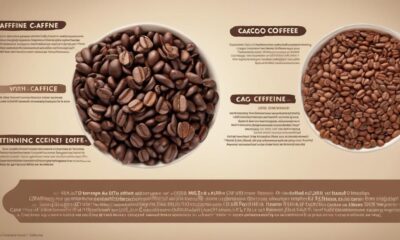
 Raw Food Ingredients4 weeks ago
Raw Food Ingredients4 weeks agoThe Truth Behind the Cacao Caffeine Myth
-

 Raw Food Ingredients2 months ago
Raw Food Ingredients2 months agoWhen Fasting Can I Drink Coffee With Raw Cacao Powder
-

 What is Raw Food?3 weeks ago
What is Raw Food?3 weeks agoHow To Store Raw And Cooked Food Separately
-
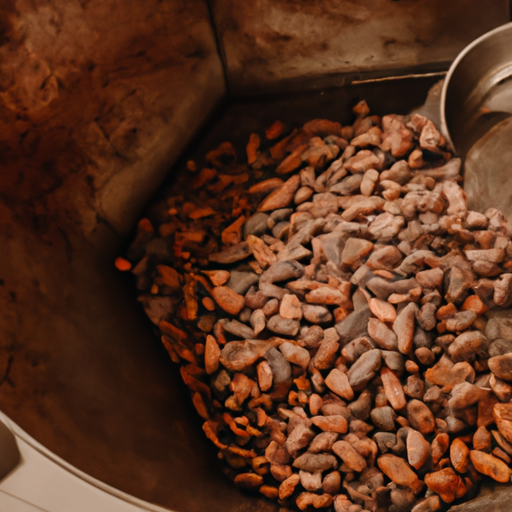
 Raw Food Ingredients2 months ago
Raw Food Ingredients2 months agoHow To Use Raw Cacao Beans
